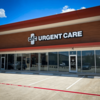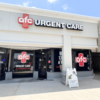Urgent Care
in Texas
Own a clinic? Add your location.
Help patients book appointments with you on Solv. It's free!
20 instant-book locations

Memorial Hermann- GoHealth Urgent Care, River Oaks Plaza
Memorial Hermann- GoHealth Urgent Care
TODAY
View more
Memorial Hermann- GoHealth Urgent Care, Washington
Memorial Hermann- GoHealth Urgent Care
TODAY
View more
Memorial Hermann- GoHealth Urgent Care, Town And Country
Memorial Hermann- GoHealth Urgent Care
TODAY
View more
Memorial Hermann- GoHealth Urgent Care, Royal Oaks
Memorial Hermann- GoHealth Urgent Care
TODAY
View more
Memorial Hermann- GoHealth Urgent Care, Kingwood
Memorial Hermann- GoHealth Urgent Care
TODAY
View more
NeuMed Urgent Care + IV Therapy, Montrose
NeuMed Urgent Care + IV Therapy
TODAY
View more
NeuMed Urgent Care + IV Therapy, Washington Ave.
NeuMed Urgent Care + IV Therapy
TODAY
View more
NeuMed Urgent Care + IV Therapy, Houston Heights
NeuMed Urgent Care + IV Therapy
TODAY
View more
NeuMed Urgent Care + IV Therapy, Galleria/Tanglewood
NeuMed Urgent Care + IV Therapy
TODAY
View more
NeuMed Urgent Care + IV Therapy, Spring Branch
NeuMed Urgent Care + IV Therapy
TODAY
View more
AFC Urgent Care, Upper Kirby
AFC Urgent Care
TODAY
View more
AFC Urgent Care, West University
AFC Urgent Care
TODAY
View more
AFC Urgent Care, Channelview
AFC Urgent Care

AFC Urgent Care, Kingwood
AFC Urgent Care
TODAY
View moreLifeline Urgent Care, Houston
Lifeline Urgent Care
TODAY
View more
Gemini Urgent Care, Houston
Gemini Urgent Care
TODAY
View more
NextCare Urgent Care, Clear Lake - a BSWHealth partner
NextCare Urgent Care
TODAY
View more
Urgent Care for Kids, Brookhollow
Urgent Care for Kids
TODAY
View more
Urgent Care for Kids, Tanglewood
Urgent Care for Kids
TODAY
View more
Urgent Care for Kids, Channelview
Urgent Care for Kids
TODAY
View moreOwn a clinic? Add your location.
Help patients book appointments with you on Solv. It's free!
Urgent Care in Texas
Health and wellness are vital considerations for those living under the sweltering Texas sun. The multicultural melting pot has over 26 million residents, all of whom will need to visit a healthcare facility at some point in their lives; many several times a year.
Heat-related problems such as heat rash, heat stroke, and heat exhaustion are common. Because these problems tend to strike fast and target the very young and the very old, waiting in an emergency room isn't always an option, particularly if the condition isn’t life threatening. The dust, heat, dry air, and coal-related industries also bring on problems ranging from sinus infections and asthma attacks, to emphysema and bronchial infections.
With a sizable elderly population on Medicaid and the state’s many immigrants from Mexico and South America who may not have insurance, it is easy to see why urgent care in Texas is so important. The emergency rooms are simply overcrowded with patients whose injuries and illnesses are not life-threatening. But not to worry, the Texas has over 300 urgent care centers within its boundaries.
But if your condition or healthcare needs are not as demanding, there are nearly one hundred retail clinics in Texas to help with minor injuries, illnesses and preventative care services, such as immunizations. Most of these locations operate within pharmacies like CVS or Walgreens while others can be found in larger stores like Walmart or perhaps grocery stores.
For more critical healthcare needs, as well as primary care physicians, Texas has some of the best healthcare systems in the country featuring Baylor Health Care System, Scott and White, Texas Health and even world-renowned specialty hospitals like M.D. Anderson Cancer Center in Houston.
Urgent Care FAQs
How much will an urgent care visit in Texas cost?
The price charged at an urgent care, whether in Texas or elsewhere, will be based on the location, and there are no actual standard costs between the clinics. Assuming you are paying with cash, you might come across an urgent clinic that charges you $50 while another situated some mile away charges you $100 for the same services. The standard cost in urgent care where insurance cover is not involved ranges from $100 to $125. This price is generally the standard price of a visit before extra services. There are a couple of additional care services that could make your appointment to an urgent care costly including x-rays and lab tests, medications and injections (such as immunization), casting broken bones, as well as stitches and splints. If you have a viable insurance plan in place, the standard pay will be between $20 – 50 depending on your insurance coverage and whether you are in contact with the provider.
Are Texas urgent care centers open after hours?
Most primary care doctor offices are open during routine work hours, Monday thru Friday, 9:00 am to 5:00 pm. Conversely, most of the urgent care centers in Texas are available after hours, on weekends, and many holidays. Typical urgent care hours are 8:00 am to 8:00 pm daily, although location-specific hours may vary.
Do urgent care centers in Texas take appointments?
Historically, urgent care centers were strictly an on-demand, walk-in healthcare service mode. More recently, as consumer behaviors and expectations have evolved, many urgent care clinics have begun offering book ahead visits, allowing consumers to select a same-day or next-day time that works best for their schedule. Use Solv to find a Texas urgent care center that offers advanced bookings (or appointments) and book online.
How do I book an appointment online with an urgent care in Texas?
Solv allows Texas residents and visitors to book urgent care visits online with just a few taps. Same-day and next-day visit times are generally available, and you can search for real-time availability clinics.
How can I find an urgent care in Texas who takes my insurance?
Solv allows you to find any of the urgent care and walk-in clinics in Texas, many of which accept most major commercial insurances. Just browse the clinics page to see if your carrier and plan is listed. If you are still unsure, it is best to contact the urgent care center directly for clarification.
Do Texas urgent care centers offer virtual visits or telemedicine?
Many urgent care centers, including those in Texas, now offer virtual visits or telemedicine for residents and visitors throughout the state. Virtual urgent care visits are generally booked online whether in advance or on-demand. Clinics that do offer virtual care have a video icon on their profiles.
What is the best urgent care center in Texas?
While it would be easy to provide a list of urgent care centers in and around Texas, 'best' is a challenging term to qualify. For some consumers, that could mean the closest location whereas other people may prioritize patient reviews, service costs, availability, or whether or not the provider accepts their insurance. With the list of locations above, use the filters provided to narrow the results to find the best urgent care for your needs.
What is Urgent Care?
Urgent care is available to assist patients that are looking for immediate, convenient medical care. In that manner, they are similar to an emergency room. The difference, however, is that ERs are meant to treat major, life-threatening injuries and illnesses while urgent care centers manage life’s minor bruises and bumps. In simple terms, an urgent care is seen as a walk-in health center that focuses in offering non-emergent health care conditions, including the treatment of the typical illnesses and injuries such as fractures and sprains, cuts and burns, scrapes, stings and bites, flu and cold symptoms, nausea and vomiting, abdominal pain, and much more. Most urgent care facilities offer both diagnostic and preventive care such as well visits, immunizations, STD testing and annual physicals. For regular visits and check-ups on these clinics, you should expect to pay between $20 and $100. The good thing is that most urgent care clinics will accept major PPOs and insurance cover, Medicare, as well as self-pay in the form of credit cards or cash. Urgent care clinics are located in most parts of the country in various regions to offset emergency room visits and provide a gap in healthcare services. They take patients during all hours of operations, which offer a significant convenience to most people who have and continue to undergo the need for sudden and immediate medical attention.
Related Searches
DOT Exam in Texas
Ear Wax Removal in Texas
Physical Exam in Texas
Sports Physicals in Texas
A1C Test in Texas
Allergy Testing in Texas
Basic Metabolic Panel in Texas
Blood Test in Texas
CMP Test in Texas
COVID-19 Antibody Test in Texas
Cholesterol Test in Texas
Diabetes Test in Texas
Drug Test in Texas
Glucose Test in Texas
Hepatitis test in Texas
Mono Test in Texas
RSV Test in Texas
STD Testing in Texas
Strep Test in Texas
TB Test in Texas
Urinalysis in Texas
Vitamin D Test in Texas
Aetna Urgent Care
Blue Cross Blue Shield Urgent Care
Cigna Urgent Care
COVID-19
Flu
United Health Urgent Care
» All services in TexasEveryday Healthcare, Simplified
Expert advice to help you live your best life




![Care Continuum: Where to Go When Your Sick or Injured [INFOGRAPHIC]](https://d1kve3ll6vvkpr.cloudfront.net/dir/media/W1siZiIsIjIwMTQvMDYvMDUvMTJfNDNfMzhfODI1X3doZXJlX3RvX2dvLmpwZyJdLFsicCIsInRodW1iIiwiMzAweCJdXQ?sha=a4b9959de5e927ba)




